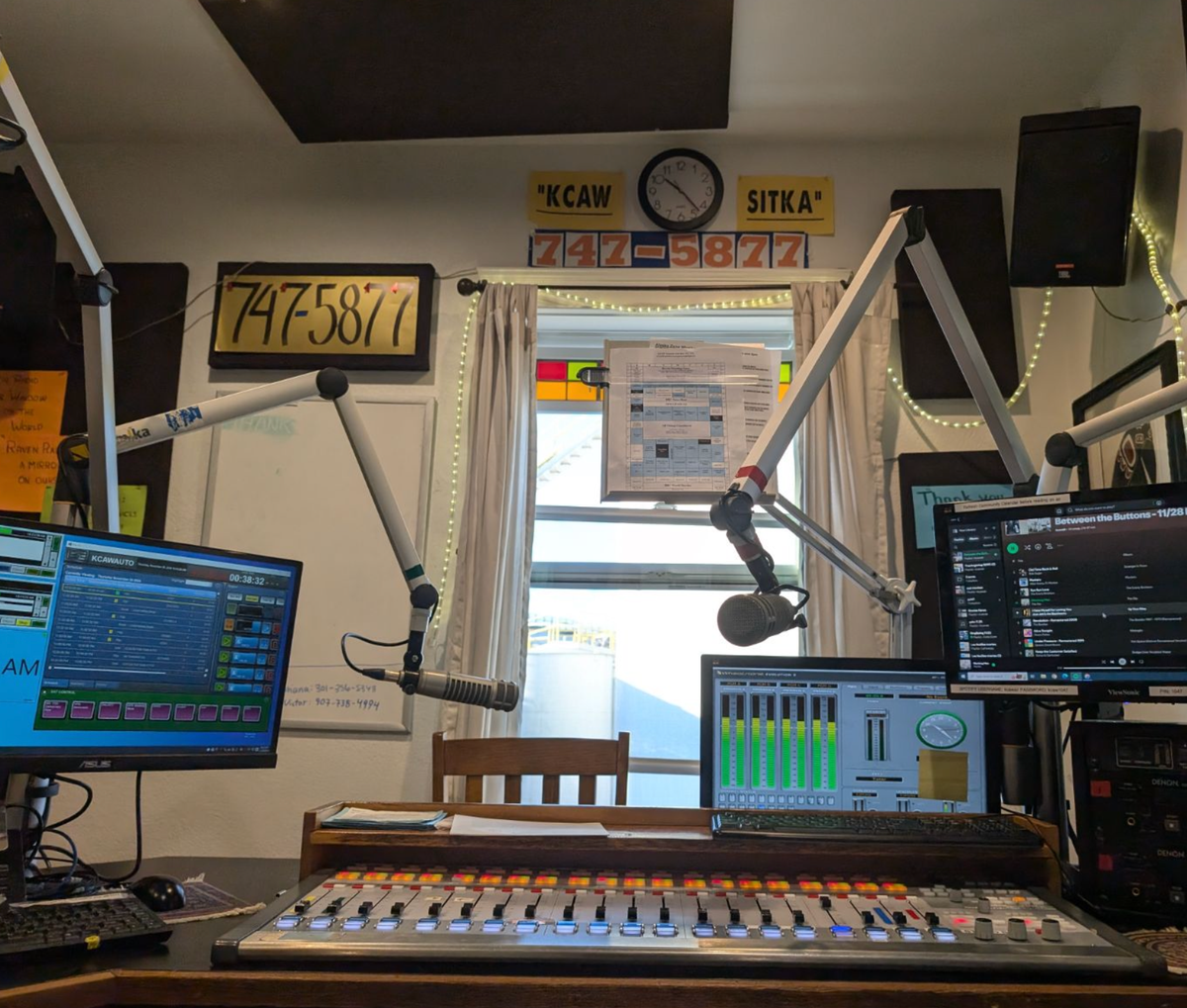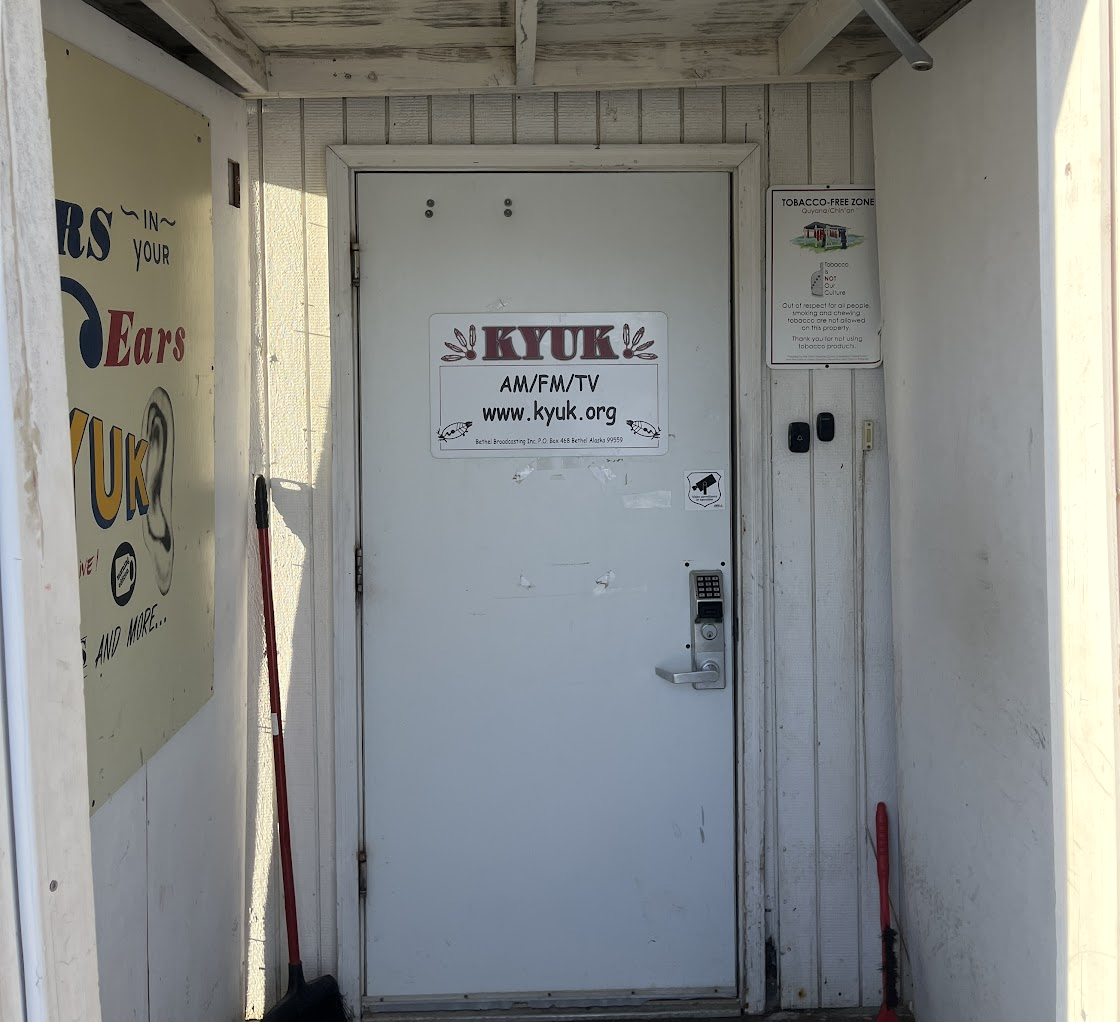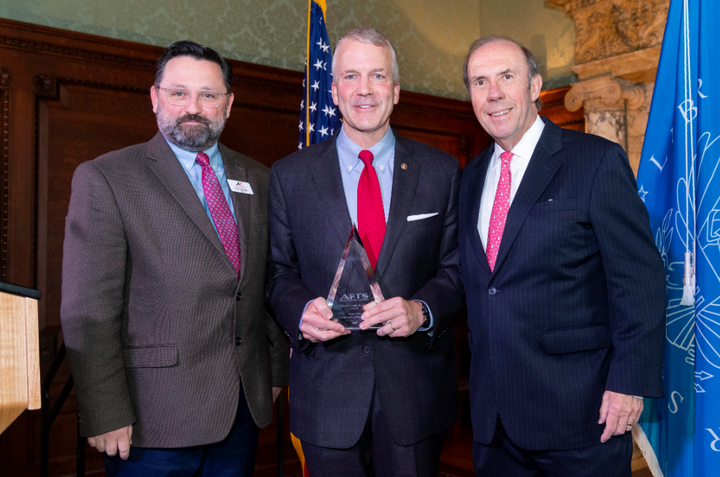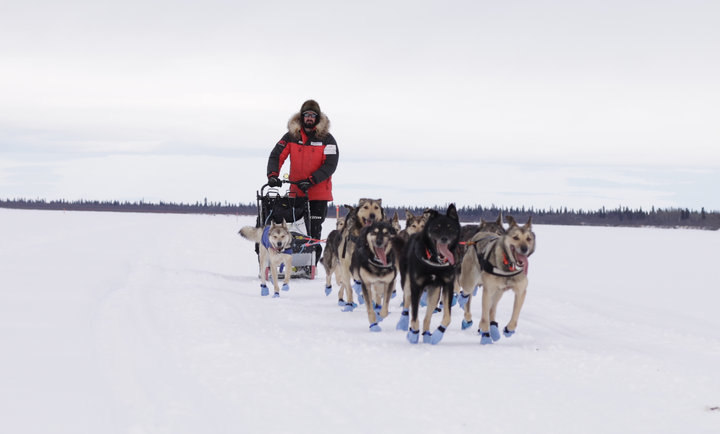“Exhausting and demoralizing”: How public media in rural Alaska is responding to federal spending cuts
A Q&A with two longtime Alaska public radio employees

On July 17, Congress voted to eliminate federal funding for public media across the United States.
The cuts, called a “rescission” in Congress-speak, are huge: They will take away some $1 billion that the federal government had previously allocated for the next two years to the Corporation for Public Broadcasting, which provides funding for national outlets like NPR and PBS as well as local radio and television stations with much smaller budgets.
That funding is essential to many of Alaska’s local news outlets. It’s no exaggeration to say that losing that money — which was slated to be delivered starting September 30 — threatens the very existence of some stations that provide news coverage and other programming, like emergency alerts, around the state.
To get a sense of how local radio and television stations are responding — and what their leaders expect in the months ahead — Northern Journal correspondent Max Graham sent some questions to two longtime public media employees in rural Alaska: Sage Smiley, news director at KYUK in Bethel; and Lauren Adams, general manager at KUCB in Unalaska.
Below are their responses, lightly edited for brevity.
What have the last few days been like for you and your colleagues? How are you feeling?
Sage Smiley: We’ve spent seven months facing – and trying to publicly push back on – an increasingly likely existential threat to public broadcasting. It’s been exhausting, and demoralizing.
Beyond the threat to our jobs, or even to this station we care so much about and where we’re trying to serve the communities of the Yukon-Kuskokwim Delta, it’s incredibly concerning and challenging to see the attack on journalism and on that pillar of democracy that this and other actions by the Trump administration represent.
In a way, though, rescission of funds has been deeply motivating to the news staff. We may be in the unique position of defining the end of a chapter of KYUK’s newsroom history, and want to do the best job we can, for as long as we can, serving the mission of KYUK and its newsroom.
Lauren Adams: On the day that the vote took place, KUCB's entire staff was working to inform our community about a tsunami evacuation following a large earthquake in the region. Our entire community, including the fishing industry workers, were evacuated to high ground. Our emergency response went off without a hitch, and we worked in tandem with our community's public safety department. It was a huge affirmation of our connection to the community and our important mission.
That night, I was very happy to hear U.S. Sen. Lisa Murkowski speak about KUCB on the Senate floor in defense of Corporation for Public Broadcasting funding. It was incredibly disappointing that her colleagues didn't hear the message and that they voted in favor of the rescission.
The following days were really low! There was a sadness and a heaviness in the office that I haven't experienced before. I know my staff was concerned about the future of their jobs and we met as a group the following day to talk through their concerns.
I told them that we will have to make changes in the future but for now we will use reserves to keep our essential services up and running and those services depend on having people on the payroll. In short, we aren't cutting staff right now.
In my case, I am beyond frustrated and dismayed looking at a budget that's just not going to balance this year without severe cuts. The federal funding cut comes on the heels of already lean years, given the lack of funding from the state of Alaska, which was eliminated under Gov. Mike Dunleavy.
One silver lining has been seeing donations come in every day from people all across the country expressing their support for the work we do. While the funds won't fill the gap made by the elimination of federal funding, the sentiment and the comments have been a real morale boost for all of us.
Could you help readers understand how significant federal funding is for your station? What proportion of your budget does it account for, and what does it pay for?
Smiley: KYUK is both a radio and a television station, called a dual licensee, so we receive two community service grants each year from the Corporation for Public Broadcasting. Together, those grants represent about 70% of KYUK’s operating funds – over $1 million. That money pays for everything from salaries to equipment to travel on bush planes for reporting.
Adams: Federal funding last fiscal year was over $280,000, over 40% of our total budget. We had it budgeted at $289,602 for this fiscal year, which started on July 1. That was 45% of this year's projected budget. There is no replacement for these funds. Our community is small but residents support us in substantial ways already. We estimate that about 8% of people in Unalaska are KUCB donors and also support us through daily non-monetary acts of generosity. We have consistently done well with local fundraising allowing us to match federal funds with local income. But we can't expect community members to fill this gap: It's just not possible.
Funding from the Corporation for Public Broadcasting supports KUCB’s local news content, a comprehensive community calendar, emergency alerts, health and safety information and government accountability through live broadcasts and streaming of municipal meetings.
What are your expectations for your station moving forward?
Smiley: KYUK has been a community institution broadcasting to the Yukon-Kuskokwim Delta for over 50 years, committed from the beginning to uplifting Yup’ik voices. Our call letters, Y-U-K, were picked because Yuk means “real person” in Yugtun, the Yup’ik language. Our ultimate goal is to stay on the air, which we have to do to keep our licenses. KYUK is unique and incredible – the only station I’m aware of in the state broadcasting news and public affairs that provides shows bilingually on a daily basis – and we want to preserve that legacy of support for Yup’ik language and culture, however possible.

Adams: We had a reporter leave the station in June to fill a Report for America position in Texas. Because I was concerned about funding, I chose not to post that position until we had a better sense of federal dollars. That means we started the fiscal year with a little financial breathing room, but also with a newsroom that was down by a quarter of our former reporting capacity. Thankfully, we have a summer news intern funded by Alaska organizations promoting journalism and community development. When she leaves next month, our community will start to notice the reduction in news coverage, which is unavoidable.
At this point, I don't know exactly what we will sound like. We will have to meet with our board of directors and with community leaders to make changes under their guidance. I imagine that we will have to sacrifice some of our daily news coverage during times when we have a lot going on.
For instance, we are going into our municipal election season and this is a mayoral election year. I am confident that we will hold our usual forums and we will produce a voter guide as we do every year. This is an important responsibility for us because we employ the only reporters in the community. But if our staff is doing this work, we will have to give up the other stories and newscasts in order to prepare for the forums. We need to be mindful of not burning out staff by just piling more work on the two remaining members of the news team.
We are lucky because our studio is located in a municipal building and the rent is free. We also receive an operations grant from the City of Unalaska. Because of this, I don't fear that our station will go dark. My bigger concern is that we will be more of a repeater station, playing statewide content instead of local content, and that we won't have the staff to cover the region's news and events and we won't be as effective during an emergency.
I imagine news of the lost funding has brought up, or will bring up, some pretty tough conversations at your station about programming cuts and layoffs. Could you shine some light on those discussions if you've already had them? Or are you still waiting and seeing what the full impacts will be?
Smiley: There’s a lot that’s still unclear, and I would say that at this point, KYUK’s future is also unclear. Seventy percent of our funding will cease to exist at the end of the federal fiscal year on September 30. That’s catastrophic. We may have to make drastic cuts to staff in order to keep providing basic broadcasting to the communities we serve.
Adams: We are hoping to hold off on layoffs for at least six months using reserves. In the meantime, we will strip our station budget down as much as possible while maintaining as much of our essential content – local news and information – as possible.
Places where we can cut immediately include syndicated programming, interconnection costs, travel, training, dues and subscriptions, computer hardware and software purchases, internet and phone, and potentially utilities. In the future we might turn off broadcast television and focus on our radio operations, but this is a hard choice that requires giving up a broadcast license that we have held locally for 50 years.
I've heard some talk that potential funding from philanthropists could make up for the lost federal spending. Is that really a possibility? Or are there other funding alternatives that are giving you hope?
Smiley: Our fall fundraiser usually brings in around $50,000, and our federal grants are 20 times that. As an ardent lover of the public broadcasting system, I would be overjoyed if a philanthropist decided to fund the network in perpetuity. But I don’t think that’s realistic, or a real solution. The whole point of the public broadcasting system is the system, and the commitment of the United States government to supporting that egalitarian, deeply democratic, equal-access system. It’s the fact that public broadcasting reaches 99% of Americans. It’s that it’s free, and available practically everywhere. A patchwork solution, one that doesn’t preserve the entirety of the system, isn’t going to address what will be lost more broadly.
Adams: I am in one of the most remote corners of the state and I might not be the one to ask about major philanthropy donors and the advocacy efforts. We have a small staff and all of us are working daily to keep our systems up and running and to provide the services that our community relies on. I don't have the resources to go after major donors. At the statewide level, I think we are all doing our best to try to envision a future where there's increased funding from philanthropists and donors. I don't know how quickly this could come together or how sustainable the model would be.
I think that federal funding filled a need, and we were a great fit for the funds because we brought crucial health and safety services to our remote community. I am not aware of a viable long term substitute for Corporation for Public Broadcasting funds.
With that said, I would love to see restoration of public media funding in our state budget. We've always received bipartisan support for state funding until the line gets vetoed by the governor. Maybe given the new funding circumstances, and the real need for the services that public broadcasters provide in Alaska, we could see restoration of some state funding.
I also know from years of experience at KUCB that building a station's relationship with a community, and establishing an award-winning news team, takes a lot of time and effort. I also know that while it's slow to build, it's very quick to erode. With reduced news staff, fewer editors, reduced equipment maintenance, and cuts to our services, we will see a spiral of reduced local income.
Could you highlight recent work at your station — whether news reporting or other programming — that wouldn't have been possible without federal funding and that illustrates the importance of your station to your community?
Smiley: Everything you see on KYUK’s website is supported by federal funding. Our calendar of fisheries openers. The local newscasts in Yugtun and English. Yup’ik Word of the Week. Decades-worth of archival television material from throughout the Delta. Our call-in shows: Fish Talk, River Watch, Talkline, Yuk to Yuk, the Birthday Line. Live coverage of high school basketball games. City Council meetings.
And then there’s all the stuff that goes out over the radio but isn’t necessarily online: radio programming the funding allows us to license, search and rescue messages, boil water notices, public service messages from the local and state governments, emergency alerts.
Adams: Again, I think that the tsunami response earlier this month is an amazing example of the work we do locally - work that is only possible with federal funding. Unalaska is a volcanic island in the middle of a chain of volcanoes, and we experience extreme weather pretty frequently. Emergency alert procedures are essential and a very real part of the work we do.
Additionally, we are the only newsroom located in the Aleutian region. The reporting work that our staff does every day is essential. While cutting syndicated programming wouldn't hurt our community because yes, we have internet in Unalaska and can get our national news and our music programming from a variety of sources, there is no replacement for the unique daily news and information that KUCB provides. We broadcast every city council meeting, ensure transparency of local government, highlight the arts and culture events that make Unalaska a unique and vibrant place to live, and provide fisheries and science reporting from an important port surrounded by some of the most productive fishing grounds on earth.

Northern Journal runs on reader support — voluntary paid memberships make up the majority of our revenue. Join if you can; if you already are a member, thank you.


